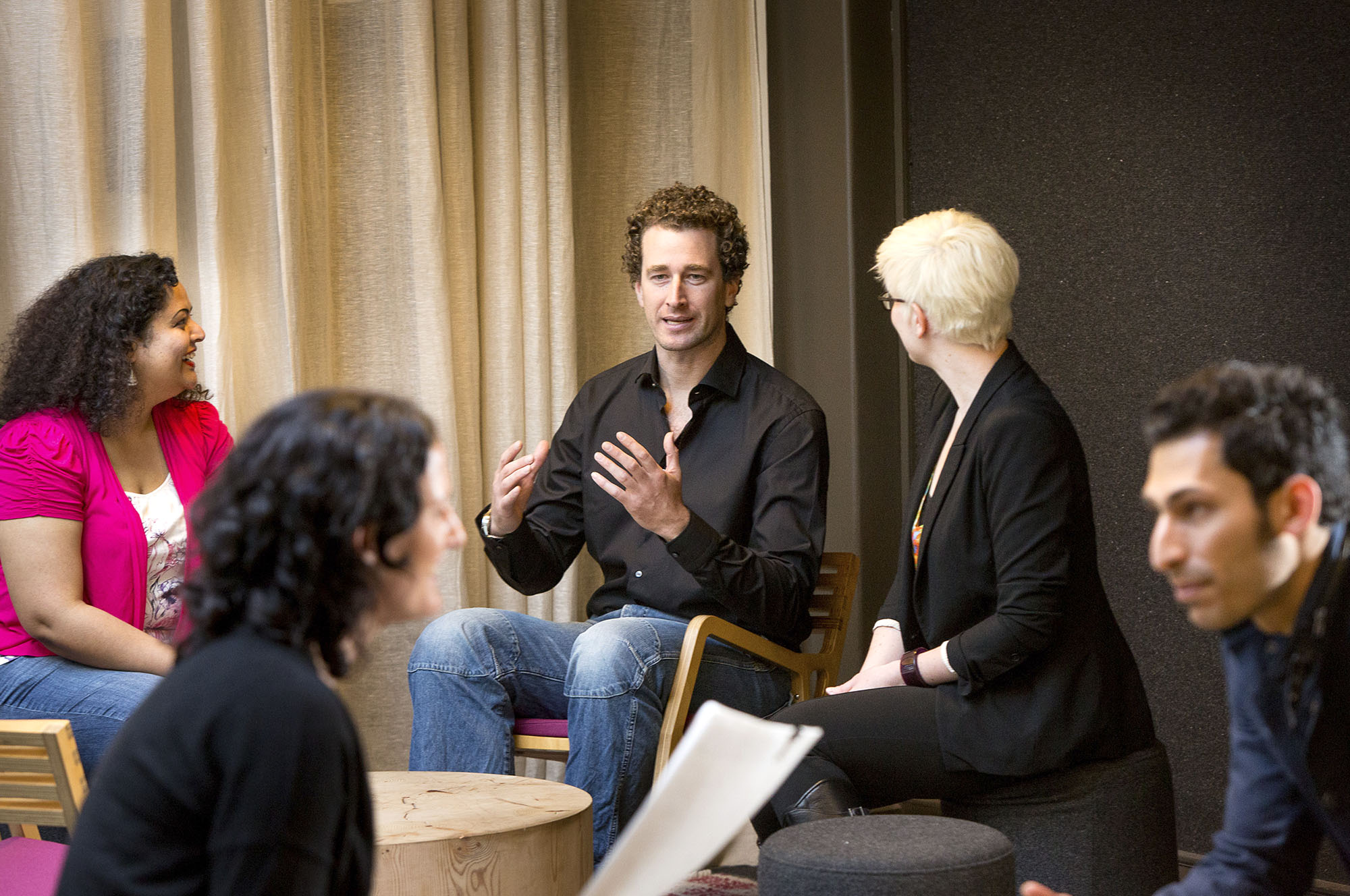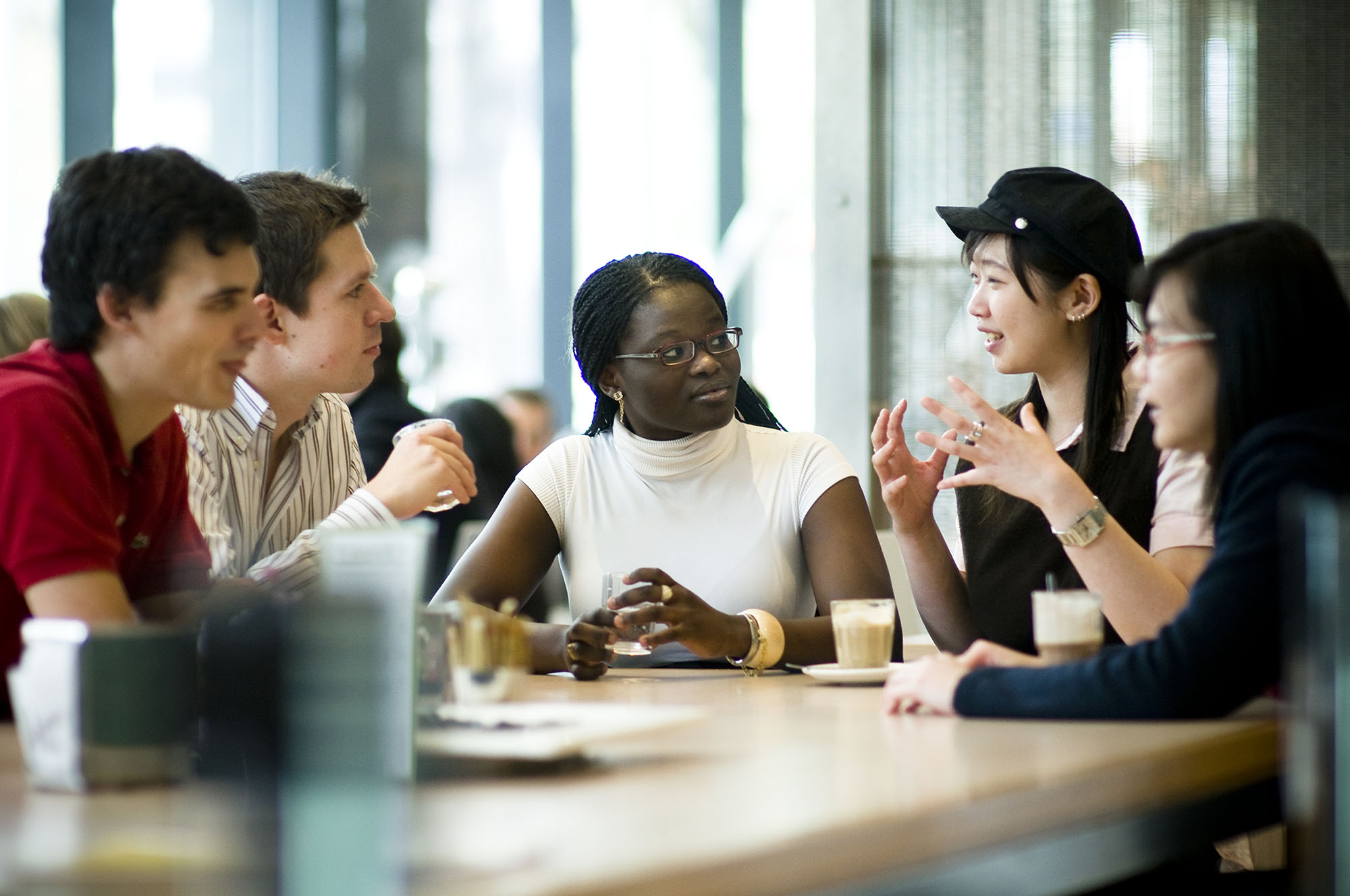Welcome to the Graduate Research Hub
Guides for all graduate researchers, resources and information from orientation to graduation
Flu vaccination appointments are now open - book your spot today!
Free influenza vaccinations are available for eligible staff and graduate researchers. Appointments are now available and can be booked via the vaccination program webpage
The Graduate Research Training Policy (MPF1321) has been revised and approved by the Academic Board. This revised policy will be published and take effect from 1 January 2025. More information that addresses some of the more common inquiries and frequently asked questions is available on the Graduate Research Training Policy FAQs page.
-
All guides
View a complete list of the guides for all graduate researchers, resources and information from orientation to graduation
-
Getting started
There is a lot to learn when you are starting out as a graduate researcher. Get familiar with your course, find your way around the University and get access to all the resources you need to achieve your academic goals.
-
Roles and responsibilities
Learn about what the University expects from you as a candidate, as well as what you can expect in return. Find guidelines to help you work effectively with your supervisors and carry out responsible research.
-
Being a candidate
Find out what you need to do to maintain your enrolment as a graduate researcher, such as passing confirmation and attending progress reviews. There's also information to help you make changes to your enrolment and resolve problems if they arise.
-
Preparing my thesis
The approach to writing your thesis will vary by discipline. Resources, programs and workshops are available to help you along the way.
-
Examination
Before you submit your thesis, there's some important steps you must take. Information, support and guidance is provided at every stage of your examination.
-
Planning my future
Access a range of resources and supporting information to help you plan your career.
-
Processes
The graduate research Processes offer comprehensive guidance on the key stages, requirements and resources essential for undertaking a graduate research degree.
Flu vaccination appointments are now open - book your spot today!
Free influenza vaccinations are available for eligible staff and graduate researchers. Appointments are now available and can be booked via the vaccination program webpage
Getting started
There is a lot to learn when you are starting out as a graduate researcher. Get familiar with your course, find your way around the University and get access to all the resources you need to achieve your academic goals.
Roles and responsibilities
Learn about what the University expects from you as a candidate, as well as what you can expect in return. Find guidelines to help you work effectively with your supervisors and carry out responsible research.
Being a candidate
Find out what you need to do to maintain your enrolment as a graduate researcher, such as passing confirmation and attending progress reviews. There's also information to help you make changes to your enrolment and resolve problems if they arise.
- Pre-confirmation
- Confirmation
- Reviewing my progress
- At risk of unsatisfactory progress
- Unsatisfactory progress
- Making changes
- Resolving issues
- Taking leave
- Study Away
- Finishing on time
- Request an evidence of enrolment or evidence of qualification statement
- Being a joint PhD candidate
- Graduate Research Tenured Study Spaces
Developing my skills
There are a range of courses and opportunities available to help you get the most out of your learning experience.
Preparing my thesis
The approach to writing your thesis will vary by discipline. Resources, programs and workshops are available to help you along the way.
Examination
Before you submit your thesis or creative equivalent, there's some important steps you must take. Information, support and guidance is provided at every stage of your examination.
Planning my future
Access a range of resources and supporting information to help you plan your career.
Processes
The graduate research Processes offer comprehensive guidance on the key stages, requirements and resources essential for undertaking a graduate research degree.
Getting support
Find key contacts, get help navigating difficulties or hardships and access a range of support services to assist you while you're a graduate researcher.
Surveys
Access more information about our student surveys.
Flu vaccination appointments are now open - book your spot today!
Free influenza vaccinations are available for eligible staff and graduate researchers. Appointments are now available and can be booked via the vaccination program webpage
-
Research skills
There are plenty of courses and opportunities available to support your research and give you the skills required to conduct research effectively. Developing these skills early is strongly recommended and highly beneficial, as they will set you up for a successful start to candidature.
-
Academic writing and communication skills
Your academic writing and communication skills are a crucial part of your studies and essential skills to have in the workplace, regardless of your chosen career. Find courses, opportunities and techniques available that help you to develop and enhance these skills.
-
Researcher Development Portal
The University of Melbourne offers a comprehensive suite of researcher professional development offerings for researchers at all stages. Use the Researcher Development Portal to explore upcoming events and resources to put you on the right path to completing your degree and prepare you for a job in any field.
-
Building professional and academic networks
Developing strong professional networks opens up a world of opportunities for you. Learn how to build your networks by attending conferences, utilising your supervisor's network, using social media and creating your ORCID account.
-
Study Away
Study Away allows you to undertake research-related activities such as fieldwork, attending conferences, attending classes or working with collaborators away from the University.
-
Research internships
Expand your professional network and strengthen your research and transferable skills through a research internship.
-
Commercialising my research
Research impact and innovation material including access to programs, funding and support to help you create impact from your research through entrepreneurship.
-
Supplementary PhD Programs
Learn more about the University of Melbourne’s supplementary PhD programs. These programs help to broaden your networks and enhance your career prospects.
-
GRAA employment opportunities
Learn how you can apply for a Graduate Researcher Academic Association (GRAA) employment opportunity, which offers paid academic work while you study. A GRAA role will allow you to build your professional experience to support your applications for future academic roles after graduation.
Flu vaccination appointments are now open - book your spot today!
Free influenza vaccinations are available for eligible staff and graduate researchers. Appointments are now available and can be booked via the vaccination program webpage

Key contacts
Contact the Graduate Student Association, find faculty contacts and more.

Research Gateway
Single point entry for finding research support services and resources to support your research. Find resources and support for funding, contracts and ethics, accessing our Research Platforms, managing research outputs and accessing services to support commercialization, knowledge and technology transfer

Scholarships
Check our scholarships page for information about applying for new scholarships, as well as how to meet requirements if you're a current recipient.

Find a support service
Find services to help you out while you're a studying - everything from health services and counselling, through Academic Skills to Financial Aid and Scholarships.
Flu vaccination appointments are now open - book your spot today!
Free influenza vaccinations are available for eligible staff and graduate researchers. Appointments are now available and can be booked via the vaccination program webpage
There are many different issues that can come up during your candidature. The University has a number of resources available to help you find solutions to problems and seek support that may be needed.
You can find your relevant faculty contacts via the Key graduate research contacts
On this page
Understanding Supervision
Harassment and Bullying
Financial support and scholarships
Managing Health and Wellbeing
Opportunities to Stay Connected
Information for International Students
Supporting Academic Development
Maintaining Motivation
Understanding Supervision |
Working with my supervisors: Your supervision team, with the support of the advisory committee, will guide and support you through all the stages of candidature. |
Resolving issues: You can expect guidance from your faculty and department throughout your candidature. If problems arise, the information on this page will help you to take a considered approach to manage any issues. |
Progress concerns: If you find yourself ‘at risk’, make sure you access the help available to you. |
Harassment and Bullying |
Respect: The University of Melbourne is committed to a safe, inclusive and respectful community. |
The Safer Community Program provides support and advice to members of the University of Melbourne community about inappropriate, concerning or threatening behaviour.
|
The Speak Safely portal enables you to report sexual misconduct directly to the right area of the University. The portal has an encrypted chat function to protect your privacy and allow you to report anonymously if you want to. Read more about Speak Safely. |
SafeZone mobile App - Through the Safer Community Program, the University introduced an App that adds another layer of safety and security for all campus users. With the App you can quickly contact security in an emergency or engage with other security services. More details and information can be found on the University's SafeZone page. |
Financial aid |
Financial support and scholarships - If you are experiencing financial hardship during your studies, The University of Melbourne Financial Aid team can help you navigate the challenges of having a limited income while studying. This may include loans, government support, grants or other types of financial assistance. |
Managing Health and Wellbeing |
Student Health and Wellbeing Hub: The ‘front door’ to access health and wellbeing services and resources for students and graduate researchers. |
Healthy workstations: This Office Ergonomics course will assist you to set up your workstation to best suit your needs and ensure safe work practices. If you cannot access this course, or need further advice on your workstation, please contact your local HR Business Partner. |
Beyond Blue wellbeing resources: Suggested activities, guidance and inspiration to help you find the balance in all areas of your life while navigating the ups and downs. Stress management: Tips for coping with stress while at University. |
Student Equity and Disability Services (SEDS): Provides services for candidates who need ongoing assistance with their studies. This may include an academic adjustment plan, which supports you when negotiating your study adjustments with your supervisors. Information you provide is strictly confidential and subject to the protections of relevant privacy laws. If you register with SEDS, you may also be eligible to apply for prospective periods of leave to account for anticipated recurring absences. See the Managing leave for ongoing chronic health conditions section of Taking Leave Health, physical and or mental support: If you have a chronic or permanent medical or mental health condition, the University can make reasonable adjustments to your studies to help offset any disadvantage you might face without them. Managing chronic conditions: This page gives ideas on how to manage a chronic condition. |
Counselling & Psychological Services: The University of Melbourne Counselling and Psychological Services (CAPS) provides free, confidential, short-term professional counselling to currently enrolled students and staff. |
WellMob: Social, emotional and cultural wellbeing online resources for Aboriginal and Torres Strait Islander People. |
Opportunities to Stay Connected |
Stay connected: Join your favourite clubs and societies and become a part of our thriving campus. |
Graduate Student Association: GSA provide representation, events, training and support for graduate students at the University of Melbourne. |
Networking: Building professional and academic networks. |
Murrup Barak: Melbourne Institute for Indigenous Development. |
Volunteering Opportunities: Volunteering can be an opportunity to meet new people and give back to the community. |
Information for International Students |
International student support: Information about student visas, Overseas Student Health Cover (OSHC) and international student support services. International student support appointments: Stop 1 provides a range of assistance, advice and information for international students. International student services map: Find service providers relating to community engagement, mental health and wellbeing, accomidation and crisis navigation. |
Study Melbourne: Access free support, information and contacts to help you enjoy living and studying in Victoria. |
Employment and your rights: Victoria legal aid provides information about your basic rights, entitlements and obligations as an employee. |
Tenants Victoria: Free and confidential legal advice, assistance and advocacy for tenants and residents in Victoria. |
Supporting Academic Development |
Academic skills : Refine your academic skills through our extensive library of online resources, templates, videos and more. |
The Thesis Writers’ Community will help you develop your writing skills, from the outset to final submission. |
Developing my skills: Enrich your studies and prepare for your future career. |
The Thesis Whisperer blog includes resources on a range of academic and wellbeing topics for graduate researchers. |
Maintaining Motivation |
Resources for studying: Information on how to cope with psychological issues which may be affecting your studies. Motivation to study: Strategies to increase and maintain your motivation to study. |
Procrastination: Strategies for overcoming procrastination when you're studying. Time Management: Master the art of prioritising your tasks and commitments to minimise stress. |
GSA’s Shut Up & Write: Graduate researchers can use these sessions to write well and write together, providing moral support and motivations. |
Perfectionism: While it can sometimes be a good thing, perfectionism can also prevent you from performing effectively at the University. Imposter syndrome and self-doubt: How to recognise feelings of inadequacy and self-doubt and how to tackle them. Self-esteem exercise: Self-esteem helps people feel they can develop their own skills and contribute to their community. |
Consider if any changes to candidature may assist you (changing from full-time to part-time, or taking leave of absence). Student life: Explore your campus and find ways to get involved with University life. |
Flu vaccination appointments are now open - book your spot today!
Free influenza vaccinations are available for eligible staff and graduate researchers. Appointments are now available and can be booked via the vaccination program webpage
-
Melbourne Research Experience Survey
Every two years the University asks graduate researchers for feedback about their research experience. The information gathered through the Melbourne Research Experience Survey from graduate researchers helps the University to identify areas of good performance as well as areas of concern.
-
Quality Indicators for Learning and Teaching (QILT)
QILT is a suite of national, higher education surveys endorsed by the Department of Education and Training that covers the student life cycle from commencement to employment.